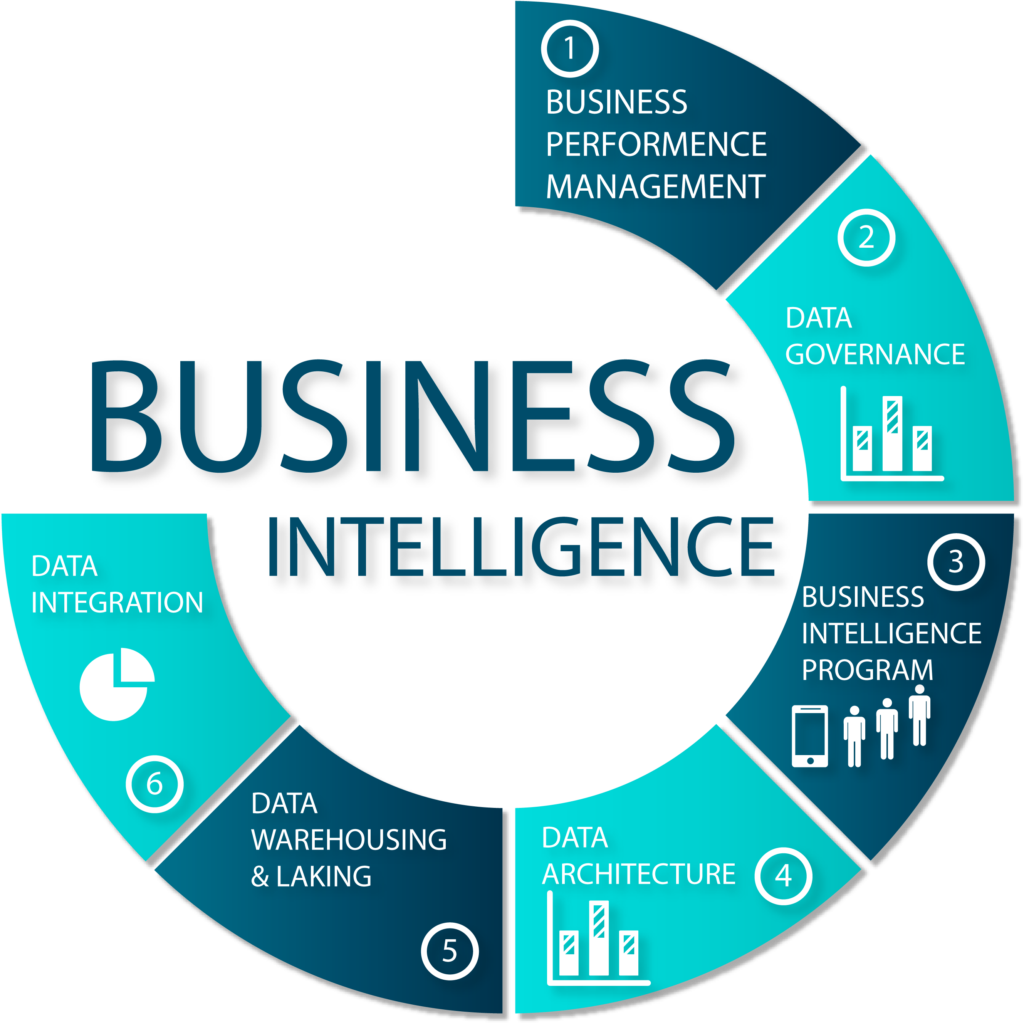In today’s fast-paced and competitive business landscape, making informed decisions is crucial for success. Business intelligence (BI) tools have become an essential component of modern business operations, enabling organizations to gather, analyze, and interpret complex data to drive decision-making. In this article, we will explore examples of business intelligence tools and their applications, as well as provide answers to frequently asked questions about BI tools.

What are Business Intelligence Tools?
Business intelligence tools are software applications that help organizations collect, analyze, and visualize data to gain insights and make informed decisions. These tools enable businesses to extract data from various sources, such as databases, spreadsheets, and external sources, and transform it into meaningful information. BI tools provide a range of functionalities, including data visualization, reporting, dashboards, and predictive analytics.
Examples of Business Intelligence Tools
There are numerous business intelligence tools available in the market, each with its unique features and capabilities. Here are some examples of popular BI tools:
- Tableau: Tableau is a data visualization tool that connects to various data sources, including databases, spreadsheets, and cloud storage. It provides an intuitive interface for creating interactive dashboards and visualizations.
- Microsoft Power BI: Power BI is a business analytics service by Microsoft that allows users to connect to various data sources, create interactive visualizations, and share insights with others.
- QlikView: QlikView is a business intelligence platform that provides data visualization, reporting, and analytics capabilities. It enables users to create interactive dashboards and analyze data from various sources.
- SAP BusinessObjects: SAP BusinessObjects is a business intelligence platform that provides reporting, analysis, and data visualization capabilities. It enables users to create interactive dashboards and reports.
- Google Data Studio: Google Data Studio is a free tool that enables users to create interactive, web-based data visualizations. It connects to various data sources, including Google Analytics, Google Sheets, and databases.
- Domo: Domo is a cloud-based business intelligence platform that provides data visualization, reporting, and analytics capabilities. It enables users to create interactive dashboards and connect to various data sources.
- Looker: Looker is a cloud-based business intelligence platform that provides data visualization, reporting, and analytics capabilities. It enables users to create interactive dashboards and connect to various data sources.
Applications of Business Intelligence Tools
Business intelligence tools have a wide range of applications across various industries, including:
- Sales and Marketing: BI tools help sales and marketing teams analyze customer behavior, track sales performance, and identify new business opportunities.
- Finance and Accounting: BI tools enable finance and accounting teams to analyze financial data, track expenses, and identify areas for cost reduction.
- Human Resources: BI tools help HR teams analyze employee data, track performance, and identify areas for improvement.
- Supply Chain Management: BI tools enable supply chain teams to analyze inventory levels, track shipments, and identify areas for optimization.
- Healthcare: BI tools help healthcare organizations analyze patient data, track treatment outcomes, and identify areas for improvement.
Benefits of Business Intelligence Tools
The use of business intelligence tools provides numerous benefits to organizations, including:
- Improved Decision-Making: BI tools enable organizations to make informed decisions by providing timely and accurate data insights.
- Increased Efficiency: BI tools automate many tasks, such as data analysis and reporting, freeing up staff to focus on higher-value tasks.
- Enhanced Collaboration: BI tools enable teams to share insights and collaborate on decision-making.
- Better Customer Service: BI tools help organizations analyze customer data and improve customer service.
- Increased Revenue: BI tools enable organizations to identify new business opportunities and optimize revenue streams.
Frequently Asked Questions (FAQs)
- What is the difference between business intelligence and business analytics?
Business intelligence refers to the process of collecting, analyzing, and interpreting data to inform decision-making, while business analytics refers to the use of statistical and mathematical techniques to analyze data and predict future outcomes. - What are the key features of business intelligence tools?
The key features of business intelligence tools include data visualization, reporting, dashboards, and predictive analytics. - How do business intelligence tools help organizations make better decisions?
Business intelligence tools provide timely and accurate data insights, enabling organizations to make informed decisions. - What are the benefits of using cloud-based business intelligence tools?
Cloud-based business intelligence tools provide scalability, flexibility, and cost savings, as well as access to real-time data and collaboration capabilities. - How do business intelligence tools help organizations improve customer service?
Business intelligence tools help organizations analyze customer data, track customer behavior, and identify areas for improvement, enabling them to provide better customer service.
Conclusion
Business intelligence tools have become an essential component of modern business operations, enabling organizations to gather, analyze, and interpret complex data to drive decision-making. With a wide range of applications across various industries, business intelligence tools provide numerous benefits, including improved decision-making, increased efficiency, and enhanced collaboration. As the business landscape continues to evolve, the use of business intelligence tools will become increasingly important for organizations seeking to stay competitive and achieve success. By understanding the examples of business intelligence tools and their applications, organizations can unlock the power of BI and drive business growth and success.
Closure
Thus, we hope this article has provided valuable insights into The Power of Business Intelligence: Examples of Business Intelligence Tools. We appreciate your attention to our article. See you in our next article!